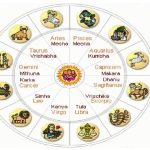Among the sixteen Hindu sanskaras (sacraments), the fourth, fifth, sixth, and seventh sanskaras are performed right after a child is born. These all are birth rituals in Hinduism and immensely important for a child’s health and well-being.
“Jatakarma”- Fouth Sanskar
The fourth Hindu Sanskar – Jatakarma or Janmavidhi is the ritual at birth. This principal ritual is a private ceremony performed by new parents, family members, and close ones. Etymologically, “Jata” means “Born”, and “Karma” means “action” or “a religious performance”, which together stands as a birth ceremony or a rite when one is born. This celebration is to strengthen the bond between father and child in Hinduism.
In the Jatakarma ritual, the father welcomes the baby by touching the baby’s lip with ghee and honey. During the ceremony, Vedic hymns are also recited for the baby’s long lifespan.
“Namkaran”- Fifth Sanskar
The fifth Hindu Sanskar is Namkaran, the rite of naming the baby. It’s also an auspicious and significant ritual of Hindus.
“Nishkraman”- Sixth Sanskar
Nishkraman is the sixth Hindu Sanskar of taking the baby out of the house for the first time. This unique rite is to increase the lifespan and wealth of the newborn. The ritual is accomplished on the same day of the third month after the child’s birth.
“Annaprashan”- Seventh Sanskar
The seventh and important one is Annaprashan Sanskar. In this ritual, the infant devours his/her first solid food in the sixth month (for boy) or the fifth month (for the girl). During the Annaprashan rite, puja (divine prayer) is performed following by other sacred rituals. The objective is to eliminate the defects caused by the ingestion of urine and feces when in the mothers’ womb.
You should follow these Hindu Sanskars for your newborn to ensure his/her a healthy and long life.
Feature Image Credit: (free for commercial use)




